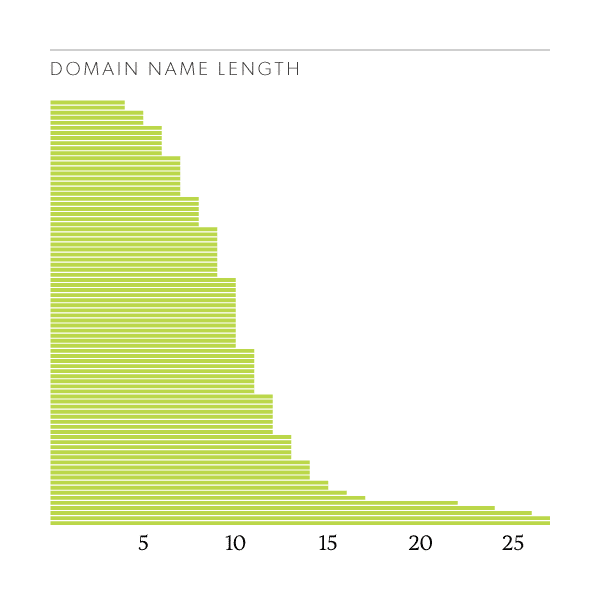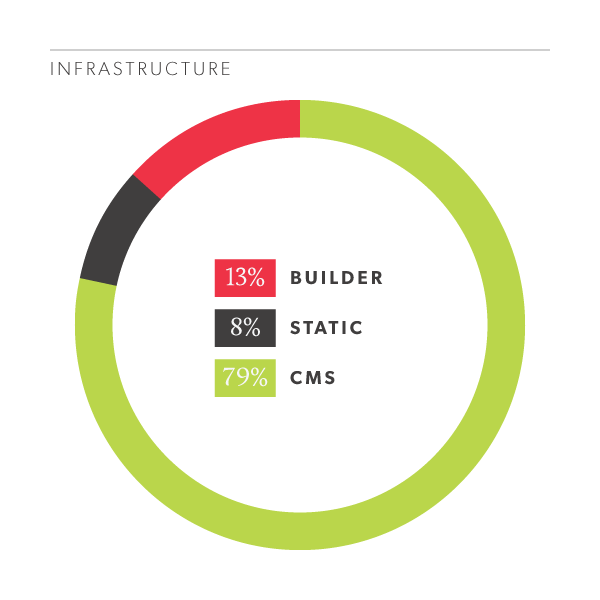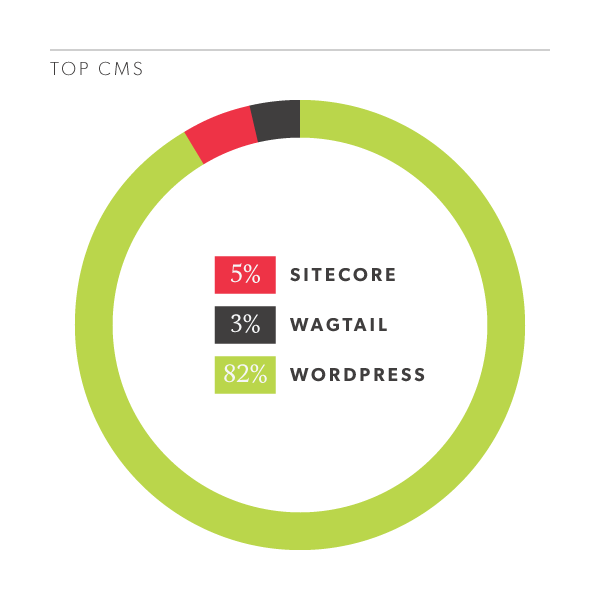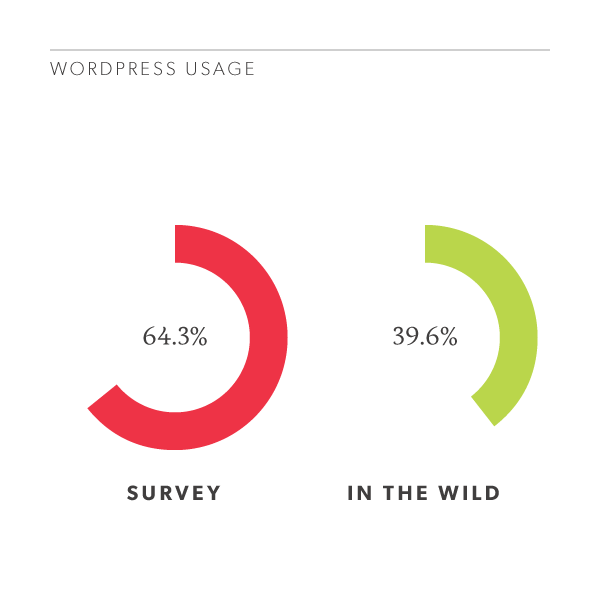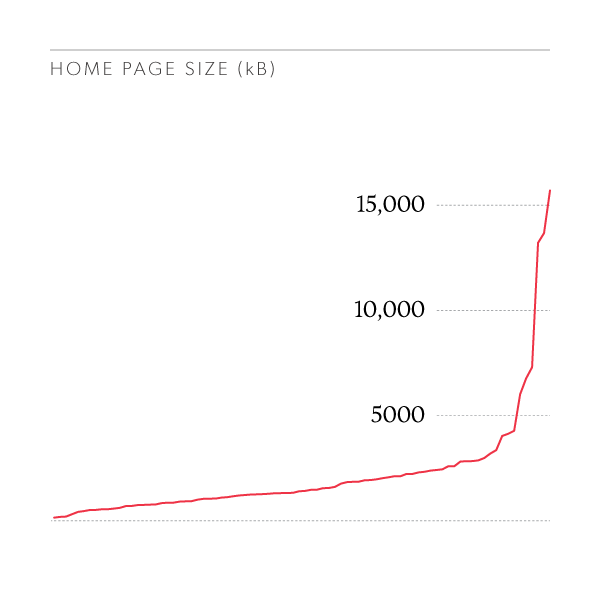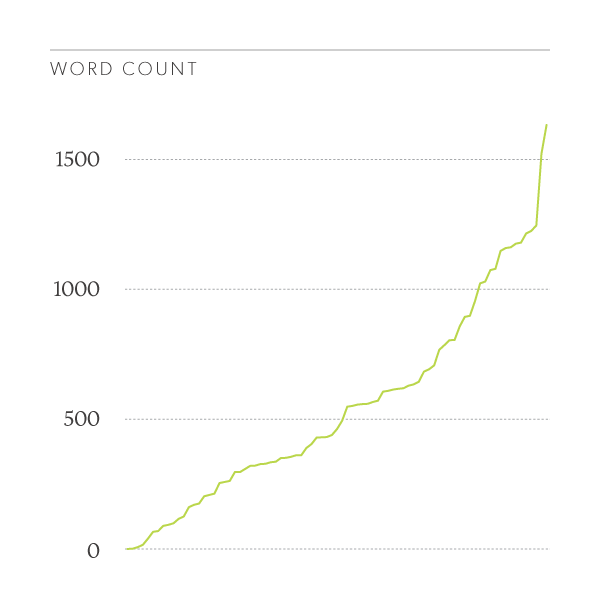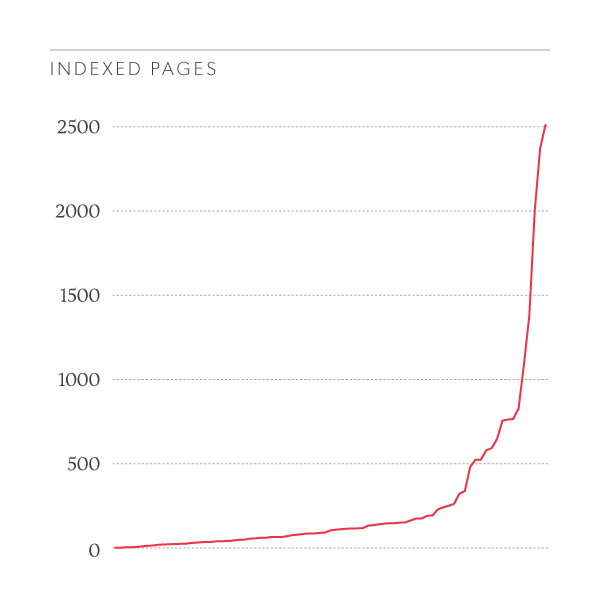Table of Contents
Intro
We’ve been doing competitive audits for our clients as a matter of good practice. It involves looking at your law firm’s closest competitors, making assessments, and looking for trends and opportunities. It’s an excellent way to look at the marketplace like a prospective client.
So early in 2022, we decided to do it on a much bigger scale. We built a list of over 80 law firms in Alberta and started digging for data on them. We’ve compiled all the data into a big spreadsheet and went to work on it. This is the result.
Each site we looked at is for a firm with offices in Alberta. Most firms only have offices in Alberta, though some are national or international. We used a combination of tools to gather information from the websites that is publicly available (even if it requires a little work).
Law Firm Domain Names
This graph shows the length of each domain name (not including the top-level domain, e.g. .com). Short domain names have become increasingly difficult to obtain, so it’s not surprising to see many firms embrace longer, more descriptive domain names that include “law” or “LLP” at the end. The median domain name length is ten characters long.
What’s that Website Built with?
The law firm websites were grouped into three general categories: Builder, Static, and CMS. The Builder category contains sites that use third-party hosted software to run the site, such as Squarespace. Static websites did not appear to use any client-accessible software to run the site and were likely compiled manually by the website developer. The CMS category uses a content management system, such as WordPress, that is typically self-hosted.
Overall Infrastructure
CMS made a tremendous showing here, which isn’t surprising. They’re an obvious choice for a law firm website because they allow the site content to be updated quickly.
Top CMSs
Looking deeper into the CMS category, we notice another trend emerge.
WordPress is running a massive number of the lawyer websites in our survey. One interesting thing observed in our survey is that WordPress isn’t always used as a CMS. We noticed several sites that had little-to-no updated content but still used WordPress. The ease of entry for building a WordPress site makes this a popular choice for novices to pick up (even if there’s a lot more to it). There’s also a huge variance in the quality of the WordPress sites we surveyed. Some of the best – and worst – performing sites used WordPress. The same could be said about the design quality; some of the nicest sites were on WordPress, and some of the ugliest.
WordPress Usage
This gives you an idea of how much the Alberta law community likes WordPress. In our survey, 64.3% of the sites used WordPress, compared to 39.6% of all websites in the wild.
How Big is it?
Home Page Size
The size of your home page suggests how much content you’re putting upfront. However, the larger the size, the longer it will take to load fully. Savvy developers are very efficient with their content, packing lots more images, fonts, and text into a smaller file size. Three websites were over 10,000 kB — an enormous size for mobile users. The median size in our survey was 1,413 kB.
Word Count
Word count is an increasingly important metric – especially for SEO. How much do you have to say beyond images and video? Three law firms we surveyed had essentially no text on their home page – only photos or video. On the other end of the spectrum, one law firm had almost 7000 words (though this seemed to be almost entirely Google reviews they’d posted). The average home page word count was 620 words. Most SEO experts suggest that highly ranking pages have at least 1200 words. Less than 18% of the law firms in our survey had more than 1000 words.
Indexed Pages
How many pages can Google see on your website? The median size in our survey was 110 pages. Naturally, smaller firms tended to have smaller websites. But this went beyond having fewer services and staff to talk about. The higher page counts comprised of news and resource sections on the website. Larger law firms invested in this area of their site, whereas smaller firms took a just-the-basics approach.
Website Performance
We spent a lot of time looking at website performance. It’s a good metric to determine how well the websites are built. Anyone can create a WordPress site – it takes a pro to make it fast. Website performance is also essential for the quality of the user experience. Further, Google now uses performance as a ranking factor.
Home Page Load Time
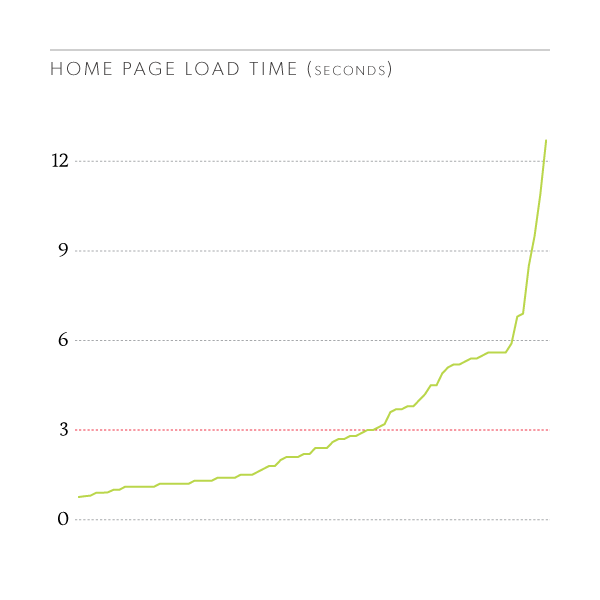
On average, the home pages for our sites loaded in three seconds or less. There were only seven that took longer than six seconds to load. That load time (especially on your home page) is an important metric to watch for.
Google PageSpeed
PageSpeed is Google’s tool/metric for how fast a website is. It measures many factors and weighs them out to assign a score, the PageSpeed. Google says that a score above 90 is good. We ran these tests using the mobile settings.
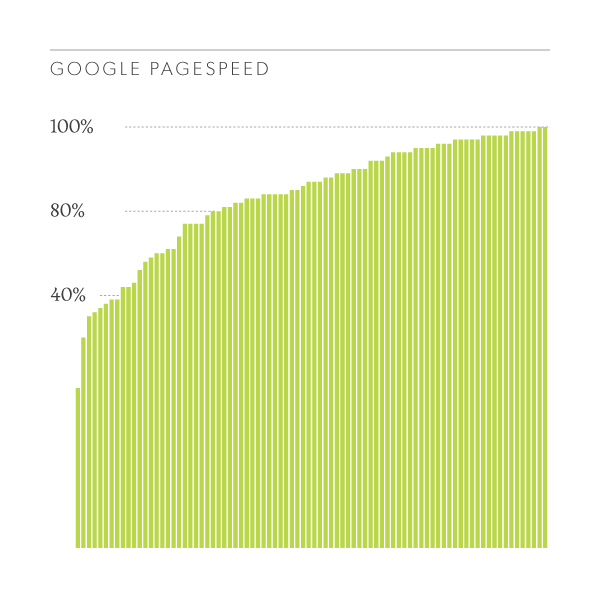
The average score of the sites we surveyed falls short at 84. However, 41% of the sites in our survey scored at least 90.
GTMetrix
GTMetrix is a popular tool website developers use to assess website performance. It assigns a grade of A, B, C, or D. We ran all of the sites through its data centre in Vancouver.
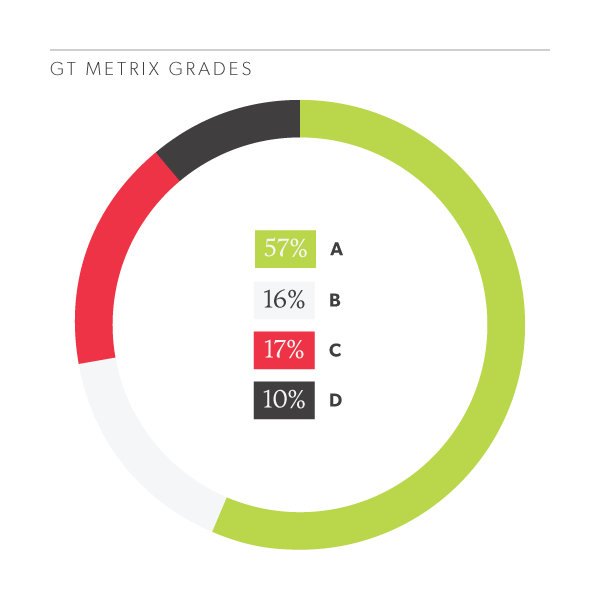
The sites fared better here – mainly because we used less stringent desktop tests. Website developers have a terrible habit of developing the site on their desktop and failing to consider that more than 50% of the law firm’s website traffic is likely to be mobile, using cellular data (which makes it slow).
Lighthouse
Google has another tool that is more comprehensive than PageSpeed, called Lighthouse. Lighthouse runs a series of audits on your webpage and generates a report on how well the page did. It scores your site performance, how well your site uses best practices, how easily Google can read the site (SEO), how accessible it is to all users, and how the website does on mobile devices. The scores are averaged to give the overall score.
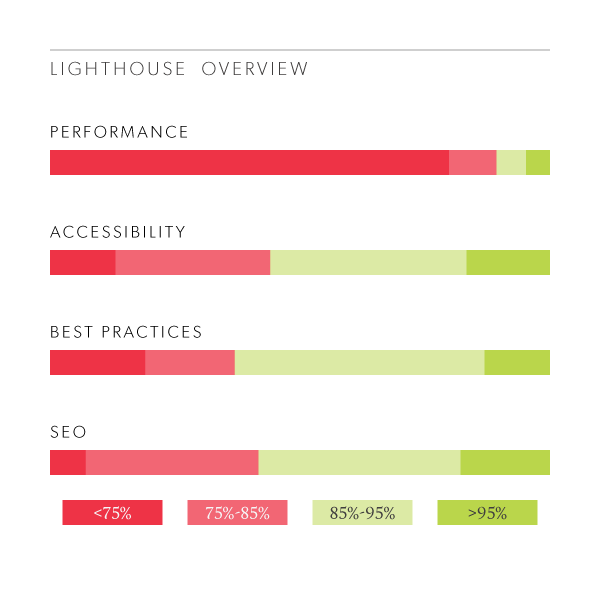
The sites tended to score worse on performance than anything else. There was a wide range of scores on the other audits, and remarkably few sites scored highly in all categories. Only 7% of the sites scored above 90 overall.
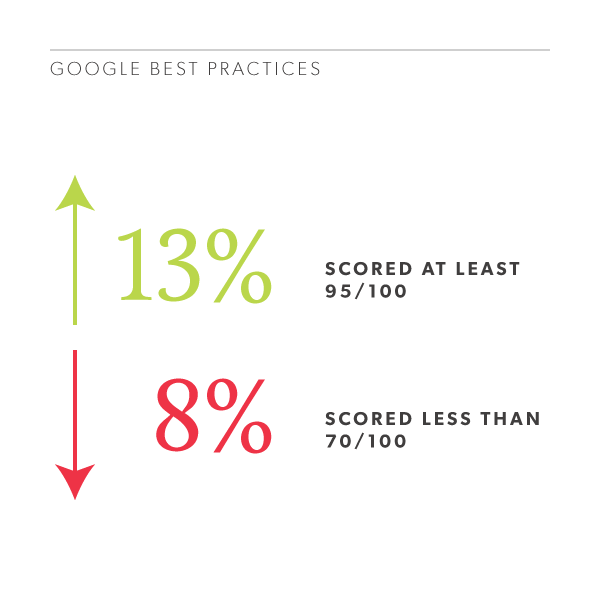
One way to think of best practices is “did the person building the site care about modern techniques?” A high score suggests that the site was built recently by someone up-to-date on current methods. A low score might be described as “eh, it’s a website.”
Search Engine Optimization
Google SEO Readability
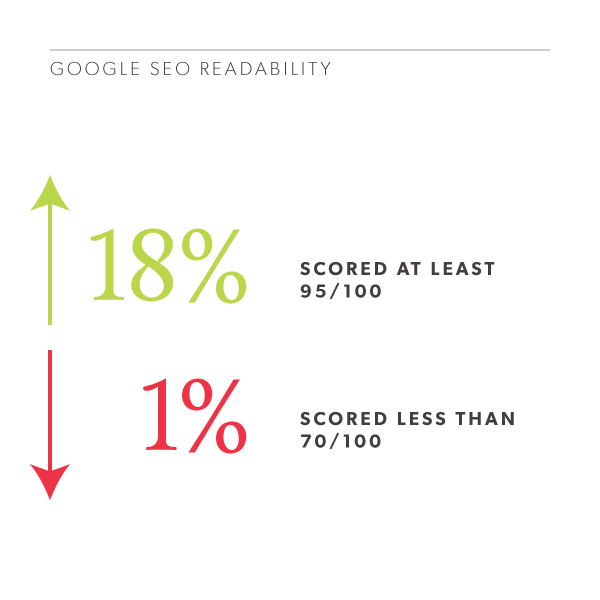
Google’s Lighthouse tool includes website audits for search engine optimization. Basically, how well can search engines read your site and display results? The higher the score, the better. A higher score on this test tells the law firm takes its SEO efforts seriously. The average score in our survey was 88%. But 45% of the websites scored above 90 here, while only one firm scored below 70%.
Domain Authority
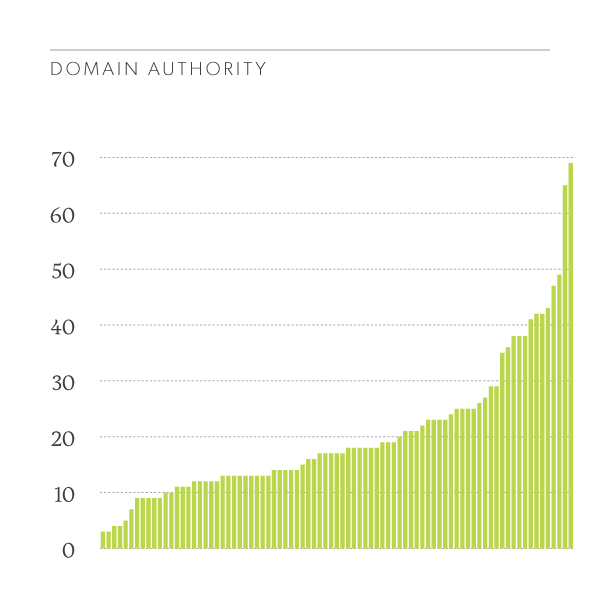
Domain Authority is a metric that describes how likely a domain is to appear in search engine results. The higher the score, the more likely the site will appear in search results. The median score in our survey was 17.
Backlinks
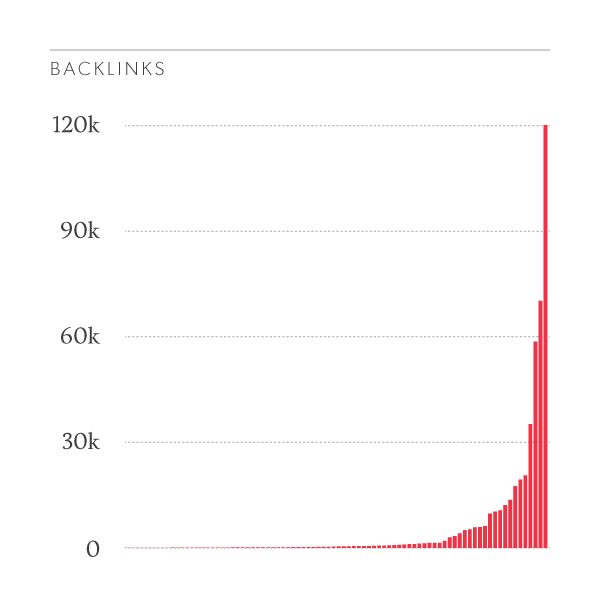
Backlinks are how many other websites link back to a page on your site. They are critical for SEO, as they act as a “vote of confidence” from another site to yours. Our survey’s average number of backlinks was 5501, but the median was just 400. Some of the national firms partially skewed the results with a massive number of backlinks. There is also some suspicion that firms with the highest number of backlinks are purchasing them on masse, an SEO tactic that is frowned upon.
